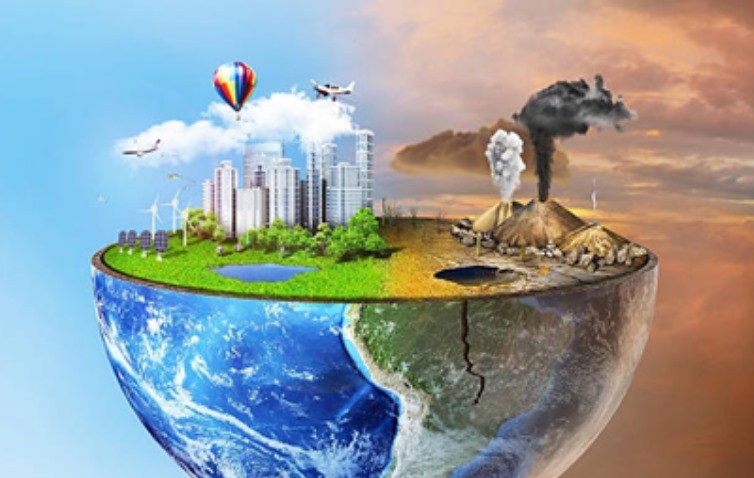Environmental Pollution
Environmental pollution is one of the most serious problems facing the world today. It refers to the presence of harmful substances in our natural environment—air, water, and land—that can cause damage to living beings and the planet. Pollution affects the health of humans, animals, and plants, and it also disturbs the natural balance of the ecosystem.
There are different types of pollution: air pollution, water pollution, soil pollution, and noise pollution. Air pollution is mainly caused by the smoke released from vehicles, factories, and the burning of fossil fuels. Water pollution occurs when harmful chemicals, plastics, and waste are dumped into rivers, lakes, and oceans. Soil pollution happens due to the excessive use of pesticides, industrial waste, and poor waste disposal methods. Noise pollution is caused by loud sounds from traffic, construction, and loudspeakers, which can affect hearing and mental peace.
The causes of environmental pollution are mainly human activities. Rapid industrialization, urbanization, deforestation, and the overuse of plastic are major contributors. The effects of pollution are severe. It leads to health problems such as respiratory issues, waterborne diseases, and even cancer. It also harms wildlife, pollutes drinking water, and contributes to climate change and global warming.
To reduce environmental pollution, everyone must act responsibly. Governments should enforce strict environmental laws and promote the use of renewable energy sources like solar and wind power. Factories should treat their waste before releasing it into the environment. People should reduce the use of plastic, recycle more, plant trees, and use public transport.
In conclusion, environmental pollution is a global issue that needs immediate attention. If we do not take steps now, it will lead to serious consequences for future generations. Protecting the environment is the duty of every human being.




